Officer Chaddha: Look at his eyes, Madam. Just like an animal’s. There is a reason why they are called ‘born criminals’.
DCP Chaturvedi: There are no born criminals, Mr Chaddha!
This dialogue from Delhi Crime Season 2 highlights the discriminatory image in which several nomadic tribes are still trapped. This web series efficiently shows how the De-Notified Tribes (“DNTs”) are perceived by different institutions of the Indian state and society. A re-examination of the condition of these tribes becomes all the more relevant after the COVID-19 outbreak, since the pandemic has disproportionately affected the most marginalised sections of the society. In this explainer, the author shall explain the existing legal provisions and related policies with respect to DNTs, and attempt to display the manner in which they have been deprived of their fundamental rights, in the context of the new series.
The Criminal Tribes Act, 1952
The 1857 mutiny was a great shock for the British campaign of civilising India through reform and imposition of Western systems. After the crown took over India, it had two goals: to incorporate India’s social niceties into the reorganised legal system, and to maintain law and order. The Criminal Tribes Act of 1871 (“the CTA”) was one of the steps taken in this direction. It was based on the false assumption that different castes in India practise distinct professions and that specific communities were professionally criminal. Other reasons for enacting this law include identifying allies and suppressing “rebellious tribes”. The CTA was amended several times and became applicable to the whole of British India in 1924. The provisions of the amended act were extraordinarily harsh and repressive. Section 13 of the CTA prescribed that the notified tribes be settled in a place. Reformatory settlements were to be created, which were practically jails. If someone from the tribe was found outside these settlements, they could be arrested without a warrant. Some provisions were as severe as separating the children from their “criminal parents”.
De-notification and The Habitual Offenders Act, 1956
In the second episode of the series, while stating that the criminal tribes were denotified after independence, Officer Chadda says (chuckling) “par fitrat thodi na badalti hai”(but the nature remains the same). This segment poignantly describes how the DNTs [Anushree1] are perceived despite being denotified by the government. The CTA was repealed in 1952 and replaced with the Habitual Offenders Act of 1956 (“the HOA”). The new legislation targets individuals, not communities. This has largely contributed to the prevalence of the colonial mindset of branding specific communities as criminals[Anushree2] [H3] . The HOA directs law enforcement officials [Anushree4] to investigate a suspect’s criminal inclinations and whether their occupation is conducive to a ‘settled way of life’, thus resulting in the persecution of innocent nomadic tribes at the hands of the police force.
Several reports highlight the atrocities committed with the Pardhis in Maharashtra and Banjaras in North India. The NHRC in 2000, and the United Nations Committee on Elimination of Racial Discrimination in 2007, have recommended repealing the HOA altogether.
Government Efforts
To understand the condition of DNTs, a National Commission for De-notified, Nomadic and Semi-Nomadic Tribes (“the NCDNSNT”) [Anushree5] was constituted in 2003; since it could not make much progress, it was reconstituted in 2005. In 2006, under the chairmanship of B.S. Renke, it started functioning again. It submitted its report in 2008. The Renke Commission estimated the population of these tribes to be around 10.7 crores. The government constituted another committee in 2014, which submitted its report in 2018, calculating the number of de-notified, nomadic and semi-nomadic communities to be around 1200. Most of these communities were included in the SC, ST or OBC category. However, more than 269 such communities did not form a part of any of these categories. [Anushree6] The Renke Commission commented on the ‘irony’ that in spite of constituting such a large proportion of the population, these communities escaped the attention of the state, unlike other SCs and STs. Additionally, the constantly moving nature of these tribes hinders their participation in the government’s developmental schemes [H7] due to the absence of residential proof.
The 2018 report[Anushree8] [H9] suggested setting up a permanent commission for these communities. However, the government rejected the idea, given that most of these tribes were already covered under SC, ST and OBCs, which came under the purview of separate commissions meant specifically for these categories. The mandate of a separate commission for DNTs would necessarily be in conflict with the mandates of the above-mentioned commissions. Thus, in 2019, the Development and Welfare Board for De-notified, Nomadic and Semi-Nomadic Communities (“the DWBDNC”) was set up under the Societies Registration Act, 1860, instead of being constituted as a specialised commission for the well-being of the DNTs. Additionally, a committee has been set up by the NITI Aayog to identify the concerned communities.
Shortcomings and Recommendations
The Standing Committee on Social Justice and Empowerment, headed by Rama Devi, submitted its report in March 2022. The report denounced the current state of the development programs for DNTs. It mentioned that the DWBDNC has still not decided how to categorise the remaining 269 communities under the SC, ST and OBC categories. Justice S. Ravindra Bhat reiterated the same in his address delivered on ‘Vimukta Diwas’ (Liberation Day) last year.
Urbanisation has on a large scale created new divides among the privileged and marginalised communities. This is highlighted in the first monologue of Delhi Crime Season 2, where Shefali Shah (DCP Chaturvedi) ruminates about ‘the inability of the system either to police the lives of the rich or the aspirations of the poor’. A significant portion of the informal workers working for the development of cities belongs to DNTs. As correctly displayed in the series, these tribes live in cramped and underdeveloped areas of the city and face an increased threat in case of any calamity. The pandemic has significantly increased this risk. A TANDA report has highlighted how DNTs face political, administrative and social injustice in various spheres, such as unregulated employment, poor educational status and lack of basic infrastructure. A hitherto ignored issue in the already limited scholarship on DNTs is that of mental health. The stigma, violence and deprivation endured by these communities for over one and a half-century has induced a sense of acceptance towards discrimination in these communities. The mental impact has been exacerbated by the pandemic which has disproportionately affected DNTs by consolidating stereotypes and lack of social security.
The principle of non-discrimination lies at the foundation of constitutional protections as elaborated under Articles 15 (1) and 17 of the Constitution. This principle not only applies to the state, but also to the wider society to undo the historical stigmatisation that has culminated in the denial of access to housing, employment, and other necessities. The Renke Commission has also suggested reserving 10% seats in government jobs for the DNTs to ensure their representation and to uplift their socio-economic status.
Conclusion
The need for sensitization regarding the plight of the DNTs is highlighted by the scene from the series, where Officer Chaddha warns DCP Chaturvedi that even pigs would be more trust-worthy than the members of the DNT community. The Government needs to take note of the academic literature and reports displaying the violent discrimination faced by these communities, and ramp up its efforts towards their rehabilitation. Given the lack of law-enforcement officers like DCP Chaturvedi in our country, it is high time that the law-making and executive bodies devise programs to ensure that the officers of the criminal justice system know that there are no ‘born criminals’.
Kartik Shrivastava is an associate analyst for LAOT and a second-year student at NALSAR.
This post was edited by Sukrut Khandekar and published by Suhani Paruvelly from the Student Editorial Team.

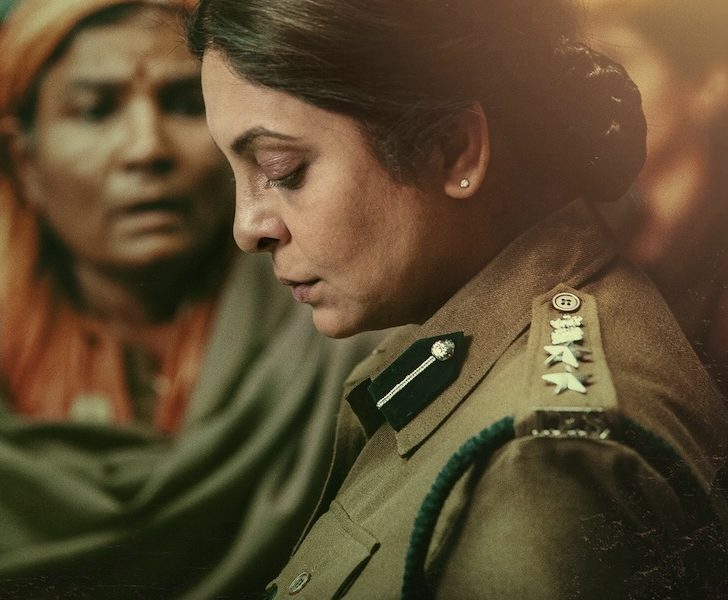
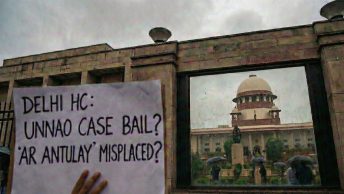
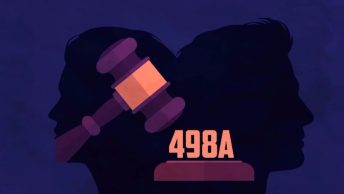
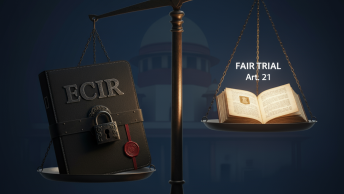
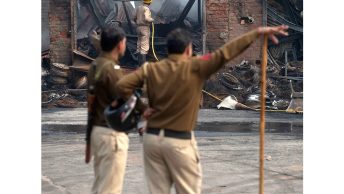

[…] Posted byKartik Shrivastava […]
we are not vote bankers..todays politicians needs votes..they do any thing for votes..so we should make vote bank by obtaining voter card to every denotified tribe people.